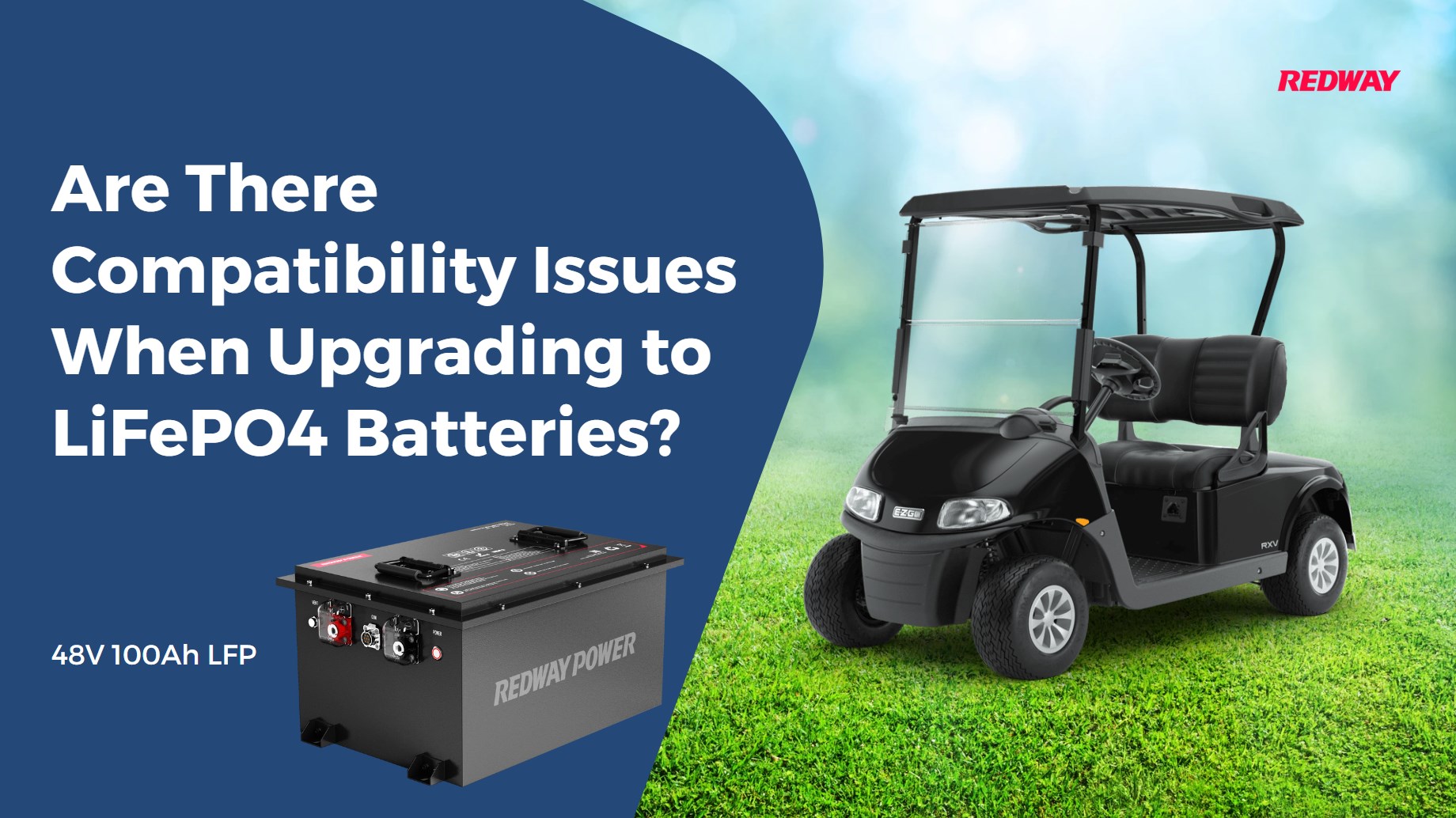Yes, compatibility issues can arise when upgrading to LiFePO4 batteries. These include differences in voltage profiles, charging systems, and the need for a Battery Management System (BMS) that may not be supported by older golf cart models.
When upgrading from lead-acid batteries to LiFePO4 batteries in golf carts, compatibility issues can arise due to differences in voltage, capacity, wiring configurations, and battery management systems (BMS). Understanding these challenges is crucial for ensuring a successful transition and maximizing the benefits of lithium technology.
What Are Common Compatibility Challenges?
Common compatibility challenges include mismatched voltage requirements, the need for a compatible charger, and potential conflicts with existing electrical systems. Ensuring that all components work together is crucial for a successful upgrade.
Wholesale lithium golf cart batteries with 10-year life? Check here.
- Voltage Mismatches: Ensure that the new LiFePO4 batteries match your golf cart’s voltage requirements (typically 36V or 48V).
- Wiring Configuration: The wiring may need upgrades to handle higher current outputs from lithium batteries.
- Charger Compatibility: Standard lead-acid chargers may not be suitable for charging LiFePO4 batteries effectively.
How Do You Assess Your Golf Cart’s Electrical System?
To assess your golf cart’s electrical system, check the voltage rating of your current batteries and inspect wiring for any damage. Use a multimeter to measure voltage at the terminals and ensure it matches the requirements for LiFePO4 batteries.
- Check the voltage rating of your current setup.
- Inspect existing wiring for wear or damage; ensure it can handle increased current.
- Evaluate the charger; it should be compatible with lithium technology.
What Are Voltage and Capacity Considerations?
When upgrading, ensure that the voltage of the new LiFePO4 batteries matches your golf cart’s system (usually 36V or 48V). Also, consider capacity; higher capacity batteries provide longer run times but may require adjustments to wiring or space.
Want OEM lithium forklift batteries at wholesale prices? Check here.
Know More:
How Do You Install LiFePO4 Batteries in a Golf Cart?
What Steps Are Involved in Replacing Lead-Acid Batteries with LiFePO4?
Are There Compatibility Issues When Upgrading to LiFePO4 Batteries?
What Tools Are Needed for LiFePO4 Golf Cart Battery Installation?
How Do Wiring and Connection Differences Affect Installation?
Wiring and connection differences can affect installation by requiring new connectors or modifications to existing wiring. Properly matching connections is essential to avoid short circuits or damage to the battery or cart.
- Thicker Wires: Higher currents necessitate thicker gauge wires to prevent overheating.
- Secure Connections: Ensure all connections are tight and secure to avoid arcing or power loss during operation.
What Are the Advantages of Switching to LiFePO4?
Switching to LiFePO4 offers advantages like longer lifespan, faster charging times, lower weight, and reduced maintenance needs. These benefits enhance performance and efficiency in golf carts compared to traditional lead-acid batteries.
- Longer Lifespan: They can last up to 6,000 cycles compared to 300-500 cycles for lead-acid.
- Lower Maintenance: LiFePO4 requires less frequent maintenance, such as no watering or equalization.
- Higher Efficiency: They provide consistent power output without significant voltage drops.
How Can Users Ensure a Smooth Transition?
To ensure a smooth transition, research compatibility with your specific golf cart model, use appropriate chargers, and follow installation guidelines carefully. Consulting with professionals can also help avoid common pitfalls during the upgrade.
- Conduct thorough research on compatibility before purchasing new batteries.
- Consult with professionals if unsure about installation or compatibility issues.
- Follow manufacturer guidelines for installation and maintenance practices.
Expert Views:
“Transitioning from lead-acid to LiFePO4 technology can greatly enhance performance but requires careful consideration of compatibility,” states an expert from Redway. “By addressing potential issues upfront, users can enjoy the full benefits of lithium battery technology without complications.”
Conclusion
Upgrading from lead-acid batteries to LiFePO4 involves understanding compatibility issues related to voltage, capacity, wiring, and charging systems. By addressing these challenges thoughtfully, users can maximize their investment in lithium technology while enjoying improved performance and longevity.
FAQ Section
- What are common compatibility issues when switching batteries?
Common issues include voltage mismatches, wiring configuration differences, and charger incompatibility. - How do I know if my golf cart is compatible with LiFePO4?
Check your golf cart’s voltage requirements and inspect existing wiring for suitability with higher current outputs. - What advantages do LiFePO4 batteries offer over lead-acid?
LiFePO4 batteries provide longer lifespans, lower maintenance needs, and greater efficiency compared to lead-acid options.







